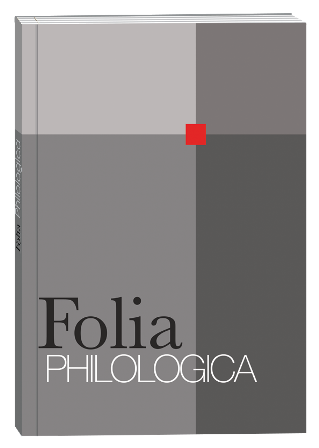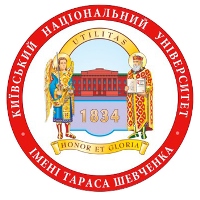РОМАН В. ЄРМОЛЕНКА «ЛОВЕЦЬ ОКЕАНУ. ІСТОРІЯ ОДІССЕЯ» ЯК ФІЛОСОФСЬКИЙ СІКВЕЛ ГОМЕРІВСЬКОГО ЕПОСУ
DOI:
https://doi.org/10.17721/folia.philologica/2022/4/7Ключові слова:
роман, сіквел, гомерівський епос, філософська проблематика, Одіссей, Пенелопа, міфАнотація
У статті досліджено філософський простір роману В. Єрмоленка «Ловець океану», створеного як продовження (сіквел) відомого античного героїчного епосу «Одіссея». З’ясовано особливості трансформації міфологічно-образного матеріалу у сучасній українській літературі. Метою статті є розкриття своєрідності змістової трансформації гомерівського епосу, поглиблення ідейного змісту роману та напрями осучаснення міфологічного образу Одіссея. Реалізація поставленої мети передбачає вирішення низки завдань, зокрема: 1) з’ясувати функції міфологічного образу Одіссея, жіночих образів у сучасному романі; 2) окреслити філософську проблематику твору; 3) визначити особливості трансформації традиційного художнього матеріалу в літературі постмодернізму. Стаття базується на порівняльному методі, також застосовано методику філологічного аналізу тексту. Наукова новизна статті полягає в уточненні жанрової природи роману В. Єрмоленка. Оскільки подорож Одіссея, втілена в гомерівському епосі, відображує його численні пригоди від зруйнованої Трої до берегів рідної Ітаки, а в романі В. Єрмоленка розгортається подорож-спокута від спаленої Ітаки до поваленої Трої, серед дослідників та рецензентів усталилася думка про віднесення «Ловця океану» до жанру травелогу. Однак у статті наведені аргументи на користь визначення жанру роману як сіквела. У висновку статті наголошується, що роман українського письменника розпочинається майже там, де завершується гомерівський епос, але смислове поле твору В. Єрмоленка значно розширює. Також письменник психологічно достовірно розкриває низку жіночих образів (Пенелопи, Навсикаї, Каліпсо, Цирцеї), любовно-еротичний складник роману доповнює глибокими розмислами про кохання, зраду, щастя, прощення, спокуту та інші морально-етичні категорії. «Ловець океану» є одним із нечисленних зразків жанру сіквелу в українській літературі. Автор переносить ідейно-смисловий акцент із зовнішнього сюжету у внутрішній світ героїв. Відбувається дегероїзація образу Одіссея. Натомість поглиблюється внутрішня мотивація його поведінки та відбувається глибоке переосмислення вчинків і дій персонажа з гуманістичного погляду.
Посилання
Vrublevska, H. (2017). Volodymyr Yermolenko. Lovets okeanu. Istoriia Odisseia [Volodymyr Yermolenko. The Ocean catcher. The story of Odysseus.]. Krytyka – Critique. 11–12 (241–242). Retrieved from: https://krytyka.com/ua/reviews/lovets-okeanu-istoriya-odisseya [in Ukrainian].
Hai, A. (2017). “Lovets okeanu” Yermolenka, abo Sontse, more i sil sliz spokuty (video) [“The Ocean Catcher” by Yermolenko, or the Sun, sea and salt of tears of redemption (video)]. Druh chytacha – Friend of the reader. 05.05.2017. Retrieved from: https://vsiknygy.net.ua/neformat/49446/ [in Ukrainian].
Hrebeniuk, T. (2018). Naratyvni formy reprezentatsii vnutrishnoho svitu heroia v romani Volodymyra Yermolenka “Lovets okeanu. Istoriia Odisseia”. [Narrative forms of representation of the inner world of the hero in Volodymyr Yermolenko’s novel “The Ocean catcher. The story of Odysseus”]. Suchasni problemy movoznavstva i literaturoznavstva – Modern problems of linguistics and literary studies. 23, 90–94 [in Ukrainian].
Yermolenko, Volodymyr (2017). Lovets okeanu. Istoriia Odisseia [“The Ocean catcher. The story of Odysseus”]. Lviv: Vydavnytstvo Staroho Leva [in Ukrainian].
Zakletskyi, A. (2017). Vnutrishnia Odisseia, abo Okean Yermolenka [Inner Odyssey, or Yermolenko’s ocean]. Ostannia barykada – The last barricade. Retrieved from: https://obarykada.com/chasopys/okean-yermolenka/[in Ukrainian].
Kosarieva, H.S. (2018). “Novyi Odissei”: dekonstruktsiia modeli mandrivnyka i voina (na materiali romanu Volodymyra Yermolenka “Lovets okeanu: istoriia Odisseia”) [“The New Odysseus”: deconstruction of the traveler and warrior model (based on the novel “The Ocean Catcher: The Story of Odysseus” by Volodymyr Yermolenko)]. Naukovi pratsi. Filolohiia. Literaturoznavstvo – Scientific works. Philology. Literary studies. Vol. 316 № 304, 39–43 [in Ukrainian].
Kotsarev, O. (2017). Mif pro Odisseia: ukrainska dekonstruktsiia. Volodymyr Yermolenko predstavyv roman “Lovets okeanu” [The myth of Odysseus: Ukrainian deconstruction. Volodymyr Yermolenko presented the novel “The Ocean Catcher”]. Den. – Day. 15.06. Retrieved from: https://day.kyiv.ua/uk/article/ukrayinci-chytayte/mif-pro-odisseyaukrayinska-dekonstrukciya [in Ukrainian].
Nikolaichuk, I. (2017). “Lovets okeanu” Yermolenka: strashenno blyzkyi i neimovirno dalekyi Odissei [Yermolenko’s “The Ocean Catcher”: terribly close and incredibly far Odysseus: a review]. Chytomo. – Let’s read. 01.08.2017. Retrieved from: http://archive.chytomo.com/news/lovec-okeanu-yermolenka-strashenno-blizkij-i-nejmovirno-dalekijodissej [in Ukrainian].
Polishchuk, Ya. (2002). Mifolohichnyi horyzont ukrainskoho modernizmu [Mythological horizon of Ukrainian modernism]. Ivano-Frankivsk: Lileia [in Ukrainian].
Sikvel [Sequel]. Retrieved from: https://slovnyk.ua/index.php?swrd=сіквел [in Ukrainian].
Uliura, H. (2917). Defitsyt siuzhetiv: yak chytaiut pysmennyky [Plot Shortage: How Writers Read]. Retrieved from: https://ukr.lb.ua/culture/2017/07/04/370609_defitsit_syuzhetiv_yak_chitayut.html [in Ukrainian].









